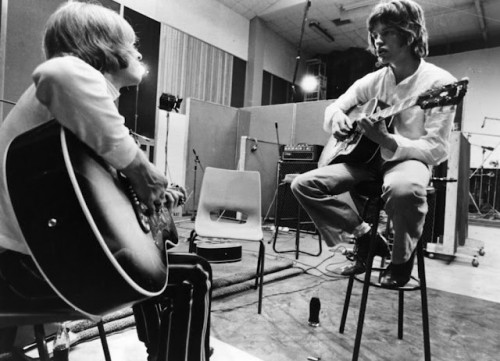
Joss “Mr. Avengers” Whedon was interviewed in Wired last week, and as you might expect, made some thought-provoking observations on ‘genre’ filmmaking, the creative process and self-justification as it relates to drama:
 Whedon: For me, I love genre because you can talk about things more intimately and specifically than you can in a family drama or a cop show without being didactic. You can absolutely get to the heart of something very weird and very personal because you have that remove…
Whedon: For me, I love genre because you can talk about things more intimately and specifically than you can in a family drama or a cop show without being didactic. You can absolutely get to the heart of something very weird and very personal because you have that remove…
I guess the thing that I want to say about fandom is that it’s the closest thing to religion there is that isn’t actually religion. The love of something and what it’s trying to accomplish or mean are usually very separate. The people who are like, “Well you can’t do it. That staircase was seven steps, not five.” They totally missed the point of this. When I first met the comic book writer Brian Michael Bendis, we were talking about comics and he told me his favorite letter was, “Daredevil would never say that. Die. Die. Why can’t you just die?”…
Since I was writing stories just for myself in my room when I was 14, I was worried about the politics of them. Of course, the more I worry about the politics, the less I’m writing. If you’re not exploiting the dark side of something, if you’re not saying that the urge to objectify exists, you are not going to make a meaningful piece of work.
The reason I felt like I had an in that most of my classmates didn’t in my feminism classes was, I was a guy, first and last. Male gaze? I was wearing those goggles every day. I was the enemy. I absolutely knew what the enemy was. I had sympathy for the devil. Not in a horrific way, but in a normal way. Sometimes you need to celebrate the darkness.
Wired: In service of story.
Whedon: In service of story and in service of life. In service of story because you want to play on fear and you want to make people afraid, you want conflict, you want to make things sexy. You know, hopefully you want to be equal opportunity. Objectification, as we understand it, is reprehensible. Being attracted to somebody is necessary. And there’s somewhere in between there that’s where we’re going to live.
Wired: Fundamentally, aren’t movies just putting people up on a screen for other people to watch? There’s objectification built into the model.
Whedon: Objectification and identification are at war but they’re at war in the way that people are, that narrative is, that creates art and humanity and life. Like they have to be at war. You have to root for the girl and the monster. It’s something nobody wants to admit. Nobody ever wants to admit that there are two sides to anything. They either want to be right or — no, they just want to be right. Sorry, I don’t know of that many people that want to be wrong. But the truth almost always lies somewhere in the middle.
And here’s a clip of Joss explaining his belief system (and the lack thereof). The scene he describes from Angel season 2 really is pretty ingenious. I don’t know many other filmmakers who consciously try to contradict themselves:
[youtube=http://www.youtube.com/watch?v=EReyF2ZzXGA&w=600]

COMMENTS
Leave a Reply













